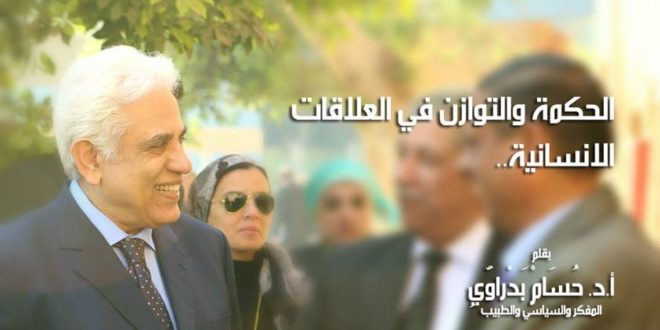By Dr. Fatima Al Mazrouei and Dr. Hossam Badrawi.
Every day we hear stories about some people who change their morals and principles, who had a strong friendship that lasted for some time and then collapsed in front of the first challenge, or marriages that began with love and passion or lasted for years that were followed with hatred, courts and conflict.
The person you admired him, his abilities and his thinking yesterday changes today, turns against you completely, a state of tension with him begins, and the feelings of appreciation turn to the feelings of hostility. Such a behavior can be noticed in the working environment or between friends. Sometimes you see them at the top of harmony and sometimes you see them at odds. That happens between young and old people. It is a behavior that does not concern a specific age group but it is general and comprehensive in every human being and in every society. Is this because of the human nature? Or is it for lack in recognizing the attitudes of friends and lovers so people are surprised by their reactions at a particular moment due to lack of recognition while in fact there might not be any surprises?
The Messenger of Allah, peace be upon him, said, “The hearts are between the two fingers out of the fingers of the Compassionate Lord as one heart. He turns that to any (direction) He likes.”
Imam Ali bin Abi Talib said, “Love your beloved mildly, perhaps he will become hateful to you someday. Hate whom you hate mildly, perhaps he will become your beloved someday.”
Love must be in balance and even hatred and hostility must be without excessiveness, injustice and aggression. In all cases, patience, gentleness and endurance are required. People do not always talk and do the way we want and like; there are different interests to humans and benefits that can match or contradict. There are priorities in the life of every one that he might not know that it is his priorities unless he is exposed to risk even by those who love him most.
Therefore, antagonism must not be absolute, inevitable and permanent, but we must always make a way to return* and if you close a door, open a window. Similarly, in the field of love and friendship, do not deplete your feelings senselessly, but keep the balance line always in mind.
The opposite idea says that this comes from the experience wisdom and long coexistence with people. However, it also takes away the feeling that gives the highest degrees of pleasure from some excessiveness in closeness, love, passion, and jealousy that distinguish youth and young people.
Wisdom makes balanced feelings live long with a little of rapture while excessiveness of emotions gives rapture that may not prolong and live with man.
Even in politics, the leaders who motivated peoples and invaded countries were often extremists in thinking and perception, except for two models that I remember: Gandhi and Nelson Mandela.
Who is closer to your mind and your heart?
“Part of the idea and sentences is taken from a message I received from Professor Fatima Al Mazrouei (Arab Bloggers) entitled ‘There is neither eternal friendship nor ongoing enmity.”
 Dr. Hossam Badrawi Official Website
Dr. Hossam Badrawi Official Website


